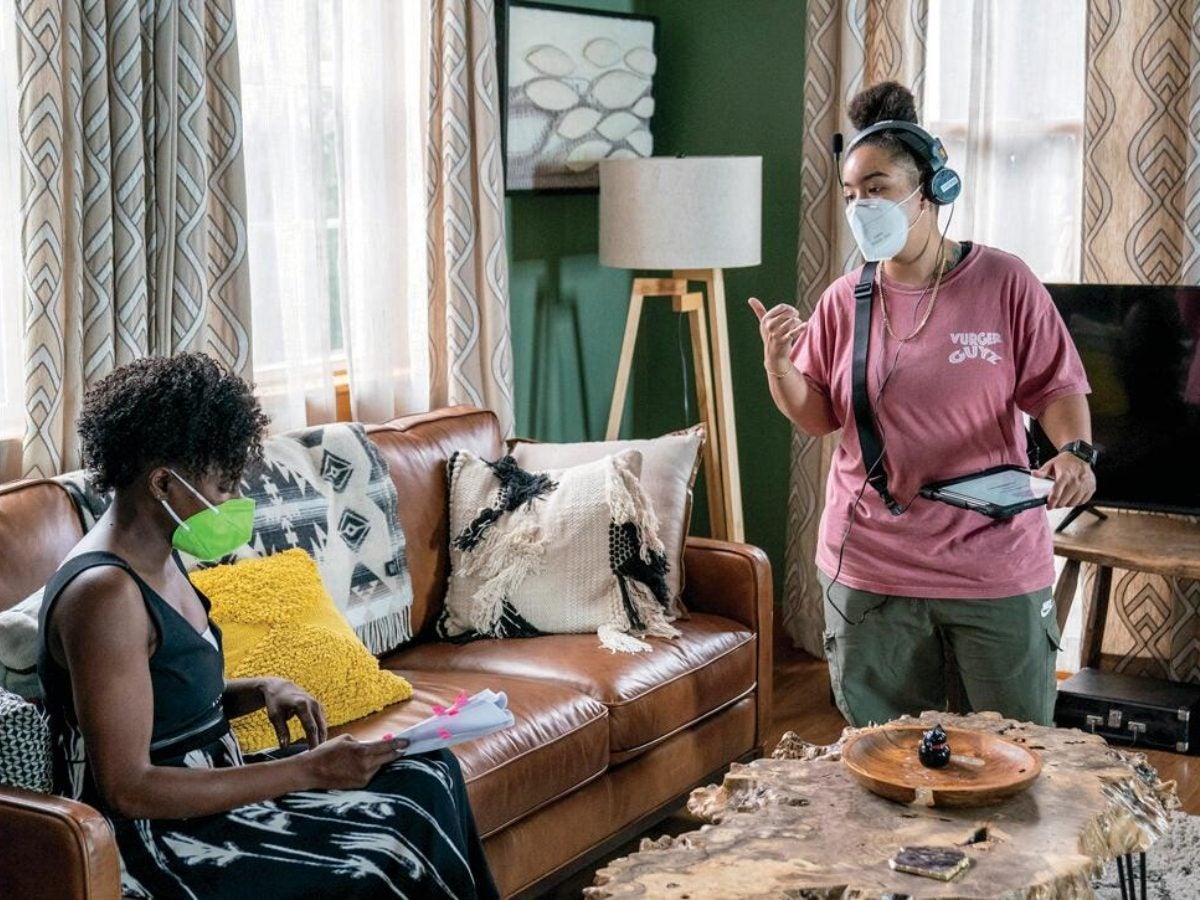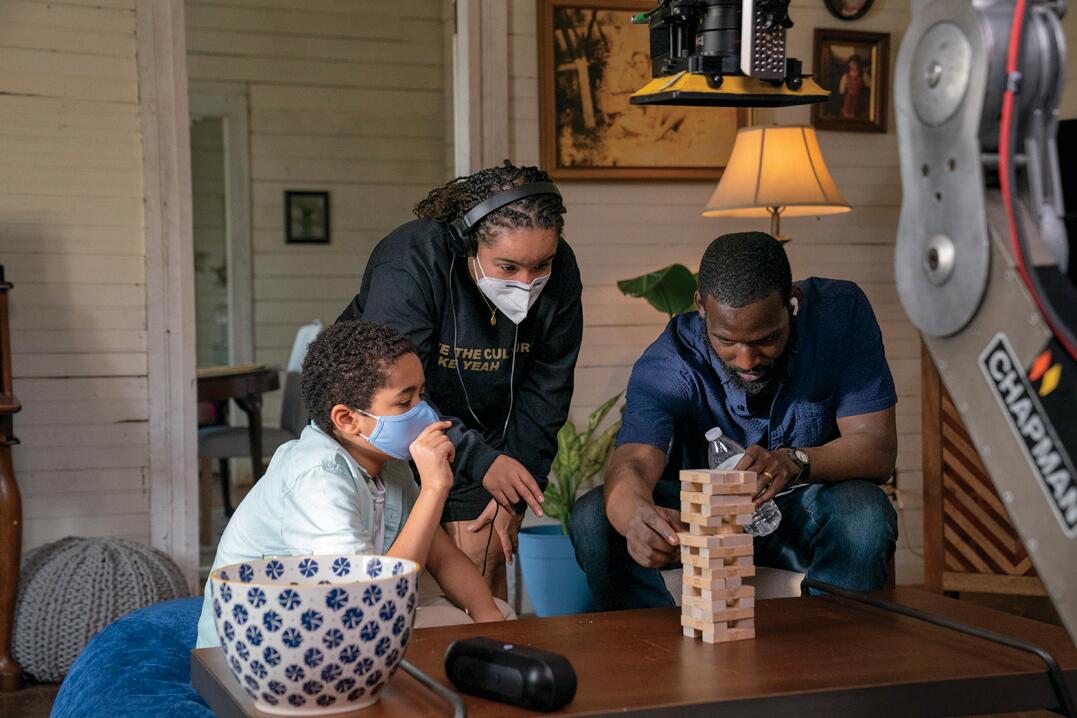
When Queen Sugar debuted six years ago, women directed 17 percent of all episodes of TV
shows, according to the Directors Guild of America’s (DGA) Episodic Television Diversity Report. Coming from the world of film, where the numbers were equally dire, director
Ava DuVernay flipped more than one script with the OWN series, which became one of the first TV shows to use female directors for every episode. Since 2016, she’s hired 42 women directors. More than half have been women of color, and 39 have been first-time scripted-television directors in the U.S.
“Ava opened the front door, the back door, the side door and every single window in the house,” says Cierra Glaude, who made her directorial debut in season five of Queen Sugar. “She really just took everything off the hinges and said, ‘Hey, we’re here, and it’s a bunch of us, and we’re good, so get hip.’”
Glaude worked as a production assistant on Selma prior to DuVernay offering her a job on a CBS pilot. One semester before graduation, she dropped out of school and moved to New York City from Alabama, which she says “mortified” her future boss. While waiting for the pilot to get picked up, Glaude continued chasing her dreams, eventually landing her
jobs on Will Packer’s box-office hit Girls Trip and Lena Waithe’s Twenties. Then she found herself in the director’s chair.

Line producer Cheryl Miller’s career in TV began more than 40 years ago. “When I started out as a production coordinator, there were two or three coordinators nationwide that were of color,” she recalls. “There were not a lot of people who looked like me in the room.” Now she’s a part of a crew largely comprised of Black women who are leading behind the scenes: casting director Aisha Coley, set decorator Kellie Turner, costume designer Christann Chanell Turner, hair department head Nakoya Yancey and makeup department head LaLette Littlejohn.
It’s “rewarding” to work in such an environment at this stage in her career, says Miller. “You don’t think it will ever happen, so to see people being given opportunities who were not given a chance before is heartwarming.”
What’s happening on Queen Sugar sets an example for the industry at large. While the DGA’s 2019–2020 report found that the number of TV episodes directed by women has doubled since 2016, UCLA’s Hollywood Diversity Report 2020: A Tale of Two Hollywoods found that people of color remain underrepresented as show creators, writers, directors, acting leads and network heads.







“I have to hope that this is the new norm,” says Meshell Ndegeocello of the precedent Queen Sugar has set. Ndegeocello has served as the show’s music composer since its inception, and she believes there is “a new awareness now of the importance of letting Black women tell stories, work and have a seat at the table.”
Six seasons in and with new episodes premiering September 7, it’s undeniable that Queen Sugar’s recipe works. “Now you see what you’ve been missing,” says Glaude—whose fellow show directors, like Cheryl Dunye and Victoria Mahoney, have gone on to direct for David Makes Man and Star Wars: The Rise of Skywalker. “The industry was bland and unseasoned for so long, and Black women came in with all the seasonings in the world and made good stuff.”






